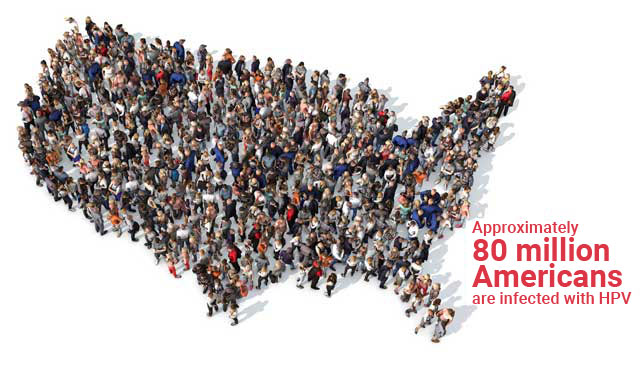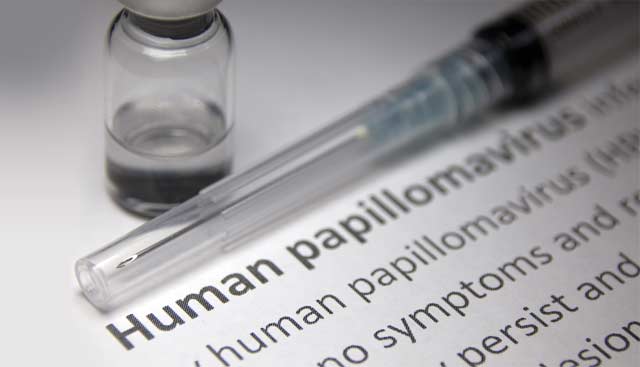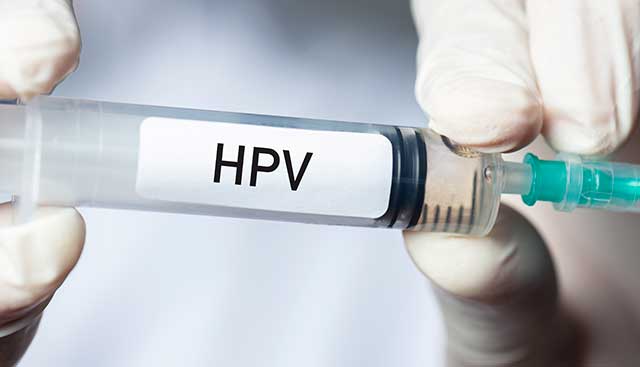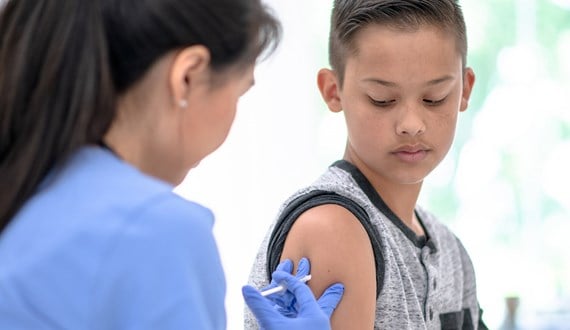What to know about the HPV Vaccine
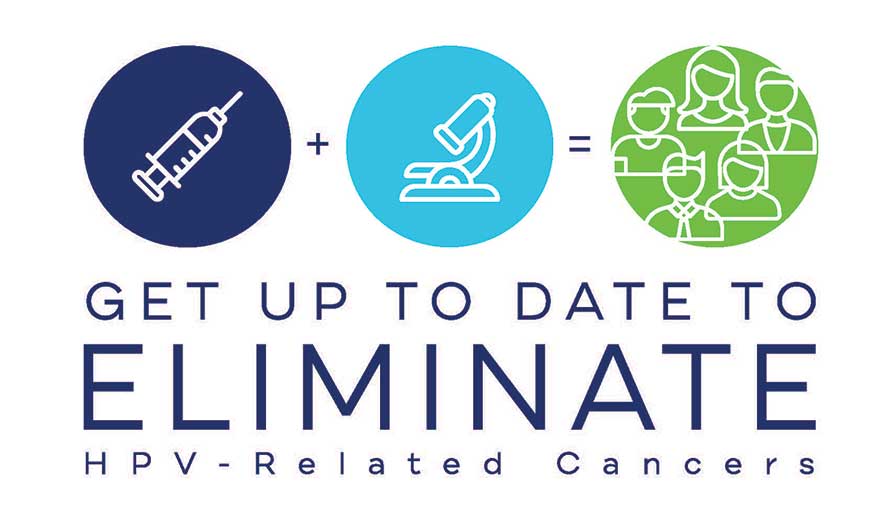
An estimated 80 million Americans are living with human papillomavirus (HPV). It's a common virus that is cleared by a person’s immune system, but some types of HPV infections can persist and can lead to cancer. In the U.S. more than 34,000 HPV-related cancers are diagnosed annually.
HPV vaccines protect against the most common types of HPV that cause cancer and other diseases. That means we can eliminate those types of HPV, and the cancers they cause, with one vaccine.
Protect yourself and your children from HPV-related cancers. Consider including the HPV vaccine as part of your child's sport physicals or annual checkups this year. Doctors recommend that both boys and girls get 2 shots of the HPV vaccine at age 11 or 12 but your child can get it as early as age 9. "Catch-up" vaccination is recommended for teens and young adults up to age 26 who have not been vaccinated, and adults between ages 27 and 45 who have not been previously vaccinated can also safely receive the vaccine.
Virtually all cases of cervical cancer are caused by HPV. In addition to vaccine, we also have effective methods to screen for cervical cancer and treat pre-cancers. If 93% of women receive the recommended cervical cancer screenings, we can eliminate cervical cancer by 2028.
Talk to your healthcare provider about the safety and benefits of HPV vaccination, and if you are a woman, whether you are up to date with your cervical cancer screening.
To learn more, check out the resources below.
-
Can I get tested for HPV?
Women can include an HPV test in combination with their cervical cancer screening (Pap smear) which identifies cell changes that can potentially lead to cancer. If you are ages of 21 to 29, you should be screened with a Pap test. If you are 30 to 65 years old, you have more options. You can be tested with a Pap test only, an HPV test only, or an HPV test along with a Pap test. Talk to your doctor about which test is best for you.
There is no HPV test for men at this time.
-
How do I get the HPV vaccine?
While Moffitt doesn't offer the vaccine, be your own advocate and protect yourself and your children from HPV-related cancers. Talk to your healthcare provider about the safety and benefits of the HPV vaccine.
-
How do I prevent HPV-related cancers?
Get yourself or your children vaccinated. HPV vaccines protect against the most common types of HPV that cause cancer. Vaccines in combination with screening and treatment can help eliminate cervical cancer, with other cancers soon to follow.
-
If I get an abnormal Pap smear or test result, should I worry?
If you get an abnormal result from your Pap smear or your HPV test is positive, your doctor will talk to you about the next steps. There are many reasons why test results might not be normal, and it does not usually mean you have cancer. Depending on the result, you may need to get tested more frequently. The good news is that with proper screening and follow-up, including treatment if needed, doctors can find changes in the cervix and in most cases prevent cervical cancer from developing.
-
Is the HPV vaccine safe?
Yes, the HPV vaccine is safe. The U.S. Food and Drug Administration (FDA) approved the Gardasil 9 vaccine for the prevention of HPV-related cancers.
-
What is Human Papillomavirus (HPV)?
HPV is a common virus that most people get at some point. In most cases, the infection is cleared by a person’s immune system, but an infection that persists can lead to cancer.
-
What is the cost of vaccination?
In Florida, the HPV vaccine given within the Centers for Disease Control's recommended ages is covered by most insurance plans. The Florida Department of Health also provides the vaccine for free up to the age of 18.
-
What kinds of cancers does HPV cause?
One in 20 cancers is caused by HPV. Most cases of cervical cancer are caused by HPV; other cancers include vaginal, vulvar, anal, penile and head and neck.
-
Who qualifies for the HPV vaccine?
Children and young adults ages 9-26.
Adults between ages 27 and 45 who have not been previously vaccinated.

